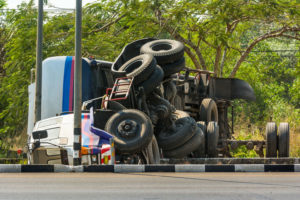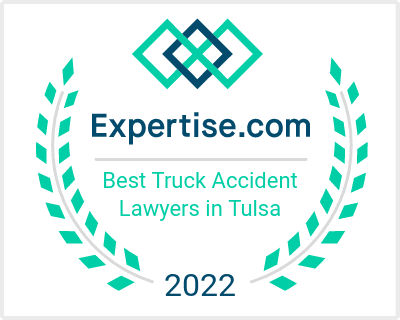 Although commercial trucks only account for about 3% of the vehicles on the road in the United States, the repercussions of a commercial truck accident versus an automobile accident can be catastrophic.
Although commercial trucks only account for about 3% of the vehicles on the road in the United States, the repercussions of a commercial truck accident versus an automobile accident can be catastrophic.
If either driver or any of the passengers involved survive a commercial truck accident, it is quite common for a lifetime of medical issues, disability, and chronic pain to follow. Many survivors of commercial truck accidents suffer lost wages from the inability to work anymore, which strains relationships with family and friends.
Commercial Truck Accident Victims
It is imperative that commercial truck accident victims receive the compensation they deserve after this type of terrible event. In order to receive said compensation, victims need professional legal representation. Commercial truck accident attorneys are experts at understanding how large commercial vehicles work, the greater energy impact on cars commercial trucks have, and the specific state and federal laws that govern commercial truck transportation.
Proving Liability
In order to receive a settlement in or out of the courtroom, it is very important that the evidence clearly shows liability on the part of the other driver. You want definitive evidence that points to the negligence of the commercial truck driver.
One of the most important pieces of information in a commercial truck accident is the electronic log, also known as the truck’s “black box.” The electronic log can show:
- speed;
- highest speed;
- how long the driver had been driving before the crash;
- if he or she was wearing a seatbelt; and
- behavior such as hard braking, inconsistent speed, and swerving.
The black box is a great tool to gauge what the truck and the driver were doing right before the crash; this can overwhelmingly help prove liability on the part of the commercial truck driver.
Other evidence that can help prove liability include:
- the commercial driver’s level of fatigue;
- the driver’s distractions (i.e. cell phones, screens, and looking down);
- drugs or alcohol in the driver’s system;
- overdue vehicle maintenance;
- broken safety equipment;
- inappropriate or shoddy repairs to the commercial truck;
- maximum weight exceeded when loading the truck;
- failure to evenly distribute weight in the truck bed; and
- the violation of Federal Motor Carrier Safety Administration Regulations for safe driving.
Collecting as much evidence that points to liability on the part of the commercial truck driver will increase your chances of recovering the cost of medical bills and lost wages as well as compensation for your pain and suffering.
First Steps After a Commercial Truck Accident
Your commercial truck accident case hinges on the evidence you are able to collect at the scene of the accident.
However, if you are unconscious or unable to write down notes or take photos, chances are a police report or accident report will be completed with some or all of the information you and your attorney need.
Immediately after the commercial truck accident, make sure to get the name, addresses, and insurance information for all the drivers involved in the accident. If you see a truck company logo or sign, make sure to write that down as well.
Next, you need to take as many pictures as you possibly can; these may ultimately be shown to a jury to prove liability. Do your best to photograph as many angles as possible, the surrounding environment, the weather, if you were at an intersection, which lane the cars are in, etc.
Try and take down as much information from eyewitnesses as possible, including their name and contact information, in case they need to testify on your behalf.
Your commercial truck accident attorney will help you request copies of police reports and all medical documentation you need for your case.
Be aware that the truck company’s investigator will be on the scene within hours to handle damage control. They will be evaluating the scene, taking pictures of the victims and how injured they appear, and anything else that will help them shirk responsibility.
Damages
There are two different kinds of damages — economic and non-economic damages.
Economic damages are expenses that can easily be assigned a value. These include medical bills, loss of income, and property damage.
Non-economic damages are those that cannot easily be valued, such as loss of quality of life, loss of companionship, and pain and suffering.
Courts still have not perfected how non-economic damages should be calculated. However, Oklahoma uses two ways to calculate pain and suffering.
The first method is to multiply the economic damages by a number that is usually different among insurance companies and accident types.
The second is the “per diem” method. This assigns a value of the victim’s life per day, starting on the day of the accident. The days are then multiplied until the victim is expected to be restored to whole, if ever.
Pain and suffering awards are not unlimited, however. In Oklahoma, an accident victim can recover a maximum of $350,000. However, there are exceptions to this amount. The amount of recovery for non-economic damages is unlimited if:
- the accident occurred due to someone’s reckless disregard of the rights of others;
- the offender was grossly negligent;
- fraud was involved; or
- the offender acted intentionally with malice.
Oklahoma permits additional financial recovery for acts by intentional wrongdoers, which can be especially helpful to those that have been seriously wronged through no fault of their own.
Initial Consultation: Tulsa Personal Injury Attorney
Consulting with an attorney as soon as possible if you are injured in a commercial truck accident is very important in order to preserve your rights, make sure insurance companies take you seriously, and help you negotiate and obtain a fair settlement.
Hiring a knowledgeable and experienced personal injury attorney will ensure the process is expertly conducted and your interests are well represented.
Contact an experienced Tulsa personal injury attorney when you need to go through the Oklahoma personal injury civil process.
For a low-cost, confidential consultation, call 918-924-5528 now.






